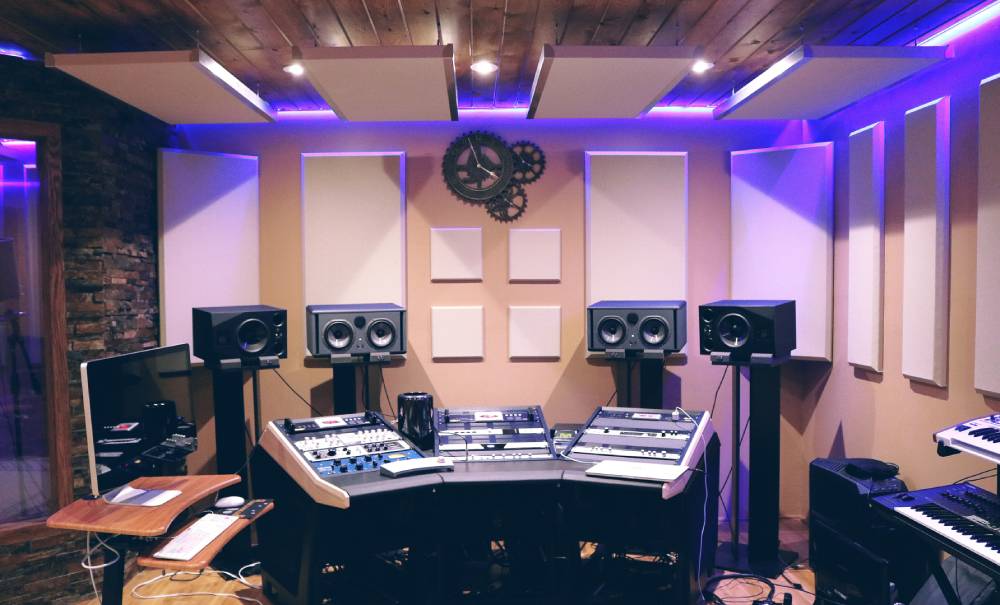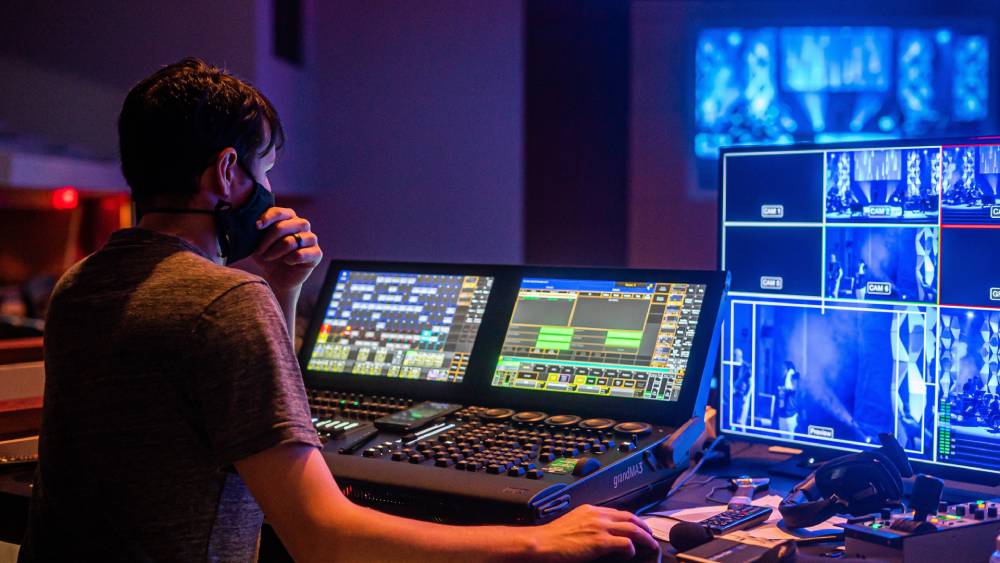
What Does an Audio Visual Technician Do?
An audio visual technician sets up, tests, operates, repairs, and troubleshoots sound and video equipment.
You’ve met or seen this technician at work countless times. For instance, this person springs into action when a microphone fails during a music concert. The same person sets up and dismantles audio-visual equipment in teleconferences, physical meetings, and productions like television shows and music videos.
This task involves handling numerous audio-visual equipment, from microphones to video cameras, amplifiers, lighting, speakers, and projectors. Additionally, AV technicians work with many professionals, from film to music producers, presenters, educators, CEOs and managers.
Where Else Do Audio Visual Technicians Work?
 Companies also require a technician when furnishing the reception, breakout spaces or new offices with audio visual technology. The task can be as simple as installing a television at the reception. But some companies require a technician to install complex technology like a multiscreen video wall and an AV credenza in the new conference room.
Companies also require a technician when furnishing the reception, breakout spaces or new offices with audio visual technology. The task can be as simple as installing a television at the reception. But some companies require a technician to install complex technology like a multiscreen video wall and an AV credenza in the new conference room.
Sometimes, this expert goes beyond offering technical support for audio visual equipment to doing inventory for directors in a production company. Other technicians operate repair shops, from where they do house calls to install, troubleshoot or repair equipment and devices.

The duties may also include assisting the team in setting up conferencing furniture. For example, the International Civil Aviation Organization was looking for a technician to assist in setting up the meeting’s seating arrangement, stationery and nameplates.
On the other hand, Cambridge wanted an AV technician with multimedia skills to manage a hybrid infrastructure for students and staff.
It proves that the duties and qualifications for this role vary from one company or organisation to the other. That brings us to:
AV Technician Skills & Qualifications
 Large organisations have a team led by a senior AV specialist who allocates duties and supervises junior technicians.
Large organisations have a team led by a senior AV specialist who allocates duties and supervises junior technicians.
If you want to start a career as an audio visual technician, a bachelor’s degree in audio and visual media or a higher national diploma in AV technology or film and television may be required. However, some qualify because they have hands-on experience in the industry.
A technician should be physically fit as the job involves a lot of lifting when working in live events. Also, since there are different AV systems, a technician ought to know the components, installation and maintenance processes of all of them.
On top of that,
● Communication skills are essential. Be an excellent communicator to listen and respond to support requests from different people.
● Have exceptional organisational skills.
● Pay attention to detail and have good hearing and eyesight to tell when sound and image are off.
● Know how to deescalate a situation and solve problems fast and professionally.
● Exhibit courteous customer service.
● Be a team player to set up, operate and dismantle equipment on a schedule.
● Be conversant with conferencing technology and software like Zoom and Microsoft Teams.
What’s a day like for an audio-visual technician during live events?
Of course, there’ll be a lot of preparation, such as site assessment, before the events.

On D-Day, an AV technician:
● Installs the audio-visual equipment and support tools.
● Runs tests and troubleshoots any problems noted.
During the event
● Operates AV equipment.
● Responds to queries and support requests.
 After the event
After the event
● Disassembles the equipment, electrical wiring and audio-visual support tools.
● Carries out any maintenance or repair needed on equipment.
● Prepares a project or expense report.
How Much Does an AV Technician Make Annually?
 As of May 2021, the average salary for an audio-visual technician in the US was about £43,000 annually. However, in the United Kingdom, the starting salary is about £18,000, whereas an experienced technician makes £35,000 annually for a 39 to 41-hour week.
As of May 2021, the average salary for an audio-visual technician in the US was about £43,000 annually. However, in the United Kingdom, the starting salary is about £18,000, whereas an experienced technician makes £35,000 annually for a 39 to 41-hour week.
Final Thoughts
The duties of an audio-visual technician are installing, operating, and troubleshooting sound, lighting and video equipment. However, some companies require this expert to set up the conference room, maintain the inventory, and clean the equipment. It doesn’t mean that all audio-visual technicians are employees. No! Some own repair shops. They make house calls to troubleshoot or repair entertainment systems.
In conclusion, audio-visual technicians are indispensable because human communication depends on audio and visual cues.
Mediascape Ltd are Scotland’s leading full-service audio-visual specialists. Get in touch today to arrange a free AV quote.




